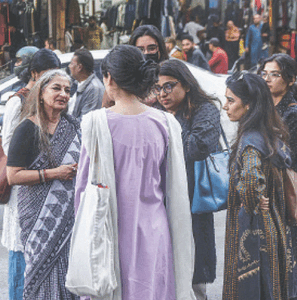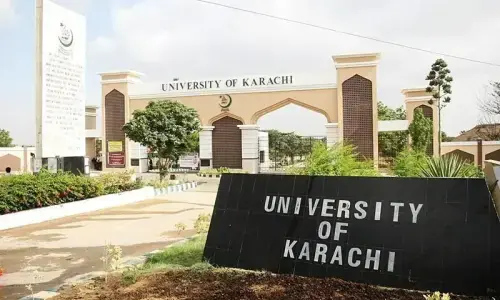KARACHI: Prime Minister Imran Khan is repeatedly reminded of the myriad promises he had made to the nation during campaigns for the 2018 general election.
But let’s remind him of his just one promise here. If fulfilled, he can become immortal as a revolutionary head of government in the annals of history.
Soon after his victory in the election, he had declared: “I will not live in the Prime Minister House and will convert it into an educational institution where common people have access.”
Now at the helm for almost three years, he admits his inability to honour his commitments, accusing his predecessor “corrupt” leaders of having thrown the country into an economic mess to amass personal wealth.
Convert PM House into a centre of higher learning and let governors and chief ministers follow suit
The PM is right. The country cannot afford to create the huge number of jobs he had promised. He is also unable to provide houses as the desperate shelterless people had hoped for after his promises. Bank loans and formalities are not what the uneducated people had understood from his statements. Both targets — jobs and houses — were unrealistic ab initio. His promise to give recognition to the Afghan- and Bengali-origin youths born in Karachi or elsewhere in Pakistan must have faced resistance from his coalition partners, particularly the Muttahida Qaumi Movement-Pakistan. His promises on other fronts, including the tirade against the International Monetary Fund, could not be fulfilled thanks to the plunder by Sicilian and other brands of the mafia sitting on either side of the aisle in the Parliament House or enjoying a life of luxury abroad.
Mafias galore and humour
By the way, Pakistan is self-sufficient in mafias. On top in the limelight these days is the “sugar mafia” led by the Tareens, Zardaris, Sharifs, Bakhtiars, not necessarily in that order. Then there are atta mafia, inflation mafia, drug mafia, beggar mafia, the old land mafia and an emerging sand mafia. What else does a third-world country like ours can aspire for? These nomenclatures have provided social media users [I’m active only on the WhatsApp platform] raw material to build a variety of humour.
For example, a recent picture of a long queue, apparently people desperate to buy cheap sugar at a utility store, was captioned: Cheen ne Deewar-i-Cheen banai aur hum ne Deewar-i-Cheenee (China has built the Great Wall and we have created the great walls of sugar).
The prime minister, can, however, fulfil one of his numerous promises — to convert the governor houses, chief minister houses, prime minister and president houses into public-sector universities or other institutions of higher education. But, alas, he has not taken even a baby step in that direction so far.
In Karachi, the sprawling Governor House was opened to the public for a couple of days before making it off-limits to the common man again, with the authorities bemoaning that the visitors ruined the flowers and greenery there and littered the sacrosanct place with trash. The incumbent governor, Imran Ismail, had earlier stated that he had a spacious house in the Defence Housing Authority and did not need to live in Governor House.
The Punjab governor, Sarwar, is a born chaudhry. Besides having properties worth millions of pounds in the United Kingdom, he must have many, many acres of agricultural land in the province. The governors and chief ministers, our own Syed Murad Ali Shah included, do not need so big official residences. The prime minister himself has a huge mansion, spread over 350 kanals, in now legalised Banigala. The president, Dr Arif Alvi, can run his ceremonial affairs on a much, much smaller space.
These buildings are big enough to house university campuses. So, there is no hurdle in converting them into educational institutions.
Grab the opportunity!
Remember, you are not here forever, prime minister — neither in your seat, nor in this world. Take this initiative and you will become immortal.
You may begin this with Prime Minister House in Islamabad to make it easier for others to vacate such places.
If inevitable, both the prime minister and the president can use single premises to operate. The Senate and the National Assembly can also run their businesses in one of the two buildings, or pitch a tent outside as most masjids do to accommodate larger than usual gatherings — on Fridays or Eids. The governors and chief ministers can be put up in either of the houses. Many other offices can be merged similarly.
So there can be no shortage of space for the top officials and legislators. No space, however, will be too big for educational institutions.
Where not suitable for educational purposes, this legacy of the Raj can be made use of by building low-cost houses for our labour class. The housing units can even be given on nominal rents to make up for the maintenance cost. We already have labour quarters built for factory workers near various industrial areas.
Published in Dawn, June 8th, 2021

































